38 neuron diagram
Types of Neurons: Parts, Structure, and Function - Verywell Health Synapse: The synapse is the portion of the neuron where information is received. The synapse is composed of small receivers, called dendrites , that pick up signals and then relay them to the axon. In addition to the billions of neurons within the nervous system, there are a host of supportive cells, called glial cells , that regulate neuronal ... Location, Structure, and Functions of Sensory Neurons With Diagrams The CNS is made of the brain and spinal cord. The PNS consists of nerves, and it connects the CNS to the organs of the periphery. Neurons are basic functional units of the nervous system. Their function is to conduct nerve impulses. Depending on the type of impulse they conduct, neurons can be classified into sensory neurons, motor neurons, or ...
How Neurons Communicate | Introduction to Psychology - Lumen Learning From this resting potential state, the neuron receives a signal, and its state changes abruptly (Figure 2). When a neuron receives signals at the dendrites—due to neurotransmitters from an adjacent neuron binding to its receptors—small pores, or gates, open on the neuronal membrane, allowing Na + ions, propelled by both charge and concentration differences, to move into the cell.
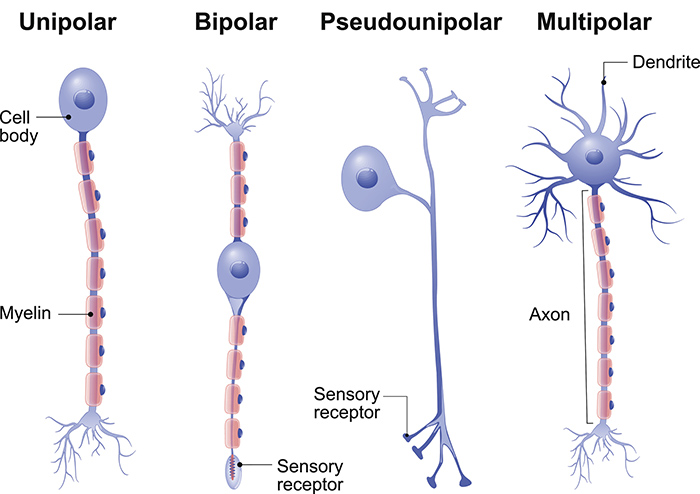
Neuron diagram
Overview of neuron structure and function - Khan Academy Simplified diagram of neural circuits involved in the knee-jerk reflex. When the patellar tendon is tapped, the quadriceps muscle on the front of the thigh is stretched, activating a sensory neuron that wraps around a muscle cell. The sensory neuron's axon extends all the way into the spinal cord, where it synapses on two targets: Nerve cell (neuron) - Mayo Clinic Nerve cell (neuron) The basic unit of communication in the nervous system is the nerve cell (neuron). Each nerve cell consists of the cell body, which includes the nucleus, a major branching fiber (axon) and numerous smaller branching fibers (dendrites). The myelin sheath is fatty material that covers, insulates and protects nerves of the brain ... › neurons-5217652Neurons: Structure, Types, How They Work, Functions - Verywell... Apr 6, 2022 · A neuron's function involves sending electrical impulses and chemical signals to and from the brain. Neurons complete this task using a process called "action potential." Action potential is the quick flow of electrical voltage from the neuron down the axon. This voltage allows information to be transmitted from neuron to neuron all over the body.
Neuron diagram. Neuron | Definition & Functions | Britannica neuron, also called nerve cell, basic cell of the nervous system in vertebrates and most invertebrates from the level of the cnidarians (e.g., corals, jellyfish) upward. A typical neuron has a cell body containing a nucleus and two or more long fibres. Impulses are carried along one or more of these fibres, called dendrites, to the cell body; in higher nervous systems, only one fibre, the axon ... › science › biologyAnatomy of a neuron (video) | Human biology | Khan Academy Neurons (or nerve cells) are specialized cells that transmit and receive electrical signals in the body. Neurons are composed of three main parts: dendrites, a cell body, and an axon. Signals are received through the dendrites, travel to the cell body, and continue down the axon until they reach the synapse (the communication point between two neurons). › science › biologyThe synapse (article) | Human biology | Khan Academy The action happens at the synapse, the point of communication between two neurons or between a neuron and a target cell, like a muscle or a gland. At the synapse, the firing of an action potential in one neuron—the presynaptic, or sending, neuron—causes the transmission of a signal to another neuron—the postsynaptic, or receiving, neuron—making the postsynaptic neuron either more or less likely to fire its own action potential. › science › biologyNeurotransmitters and receptors (article) | Khan Academy Diagram of a synapse, showing neurotransmitters stored in synaptic vesicles inside the axon terminal. In response to an action potential, the vesicles fuse with the presynaptic membrane and release neurotransmitter into the synaptic cleft.
Parts of a Neuron and How Signals are Transmitted - Verywell Mind Terminal Buttons and Synapses. The terminal buttons are located at the end of the neuron and are responsible for sending the signal on to other neurons. At the end of the terminal button is a gap known as a synapse. Neurotransmitters are used to carry the signal across the synapse to other neurons. Neurons: Meaning, Types, Functions, Structure, Diagrams - Embibe They use electrical and chemical signals to coordinate all the essential functions of life. The basic unit of the human nervous system is the neuron. In this article, we will explore the definition of neuron, types of neuron, diagram of neuron, neuron's structure, and neuron's functions. Continue reading to find out more! Neuron - The Definitive Guide | Biology Dictionary A bipolar neuron has the same structures as all neurons but is arranged differently. The central cell body makes a border between the dendrite end and the axon and terminal end. Dendrites are multiple and sometimes it is difficult to know which end is which in a simplified bipolar neuron diagram. Motor Neuron: Function, Types, and Structure - Simply Psychology There are two types of motor neurons: Lower motor neurons - these are neurons which travel from the spinal cord to the muscles of the body. Upper motor neurons - these are neurons which travel between the brain and the spinal cord. The structure of a motor neuron can be categorized into three components: the soma, the axon, and the dendrites.
› neuronAn Easy Guide to Neuron Anatomy with Diagrams - ... Neurons are the information processing units of the brain which have a responsibility for sending, receiving, and transmitting electrochemical signals throughout the body. Neurons, also known as nerve cells, are essentially the cells that make up the brain and the nervous system. Neurons do not touch each other, but where one neuron comes close ... byjus.com › biology › diagram-of-neuronA Labelled Diagram Of Neuron with Detailed Explanations - BYJUS A neuron is a specialized cell, primarily involved in transmitting information through electrical and chemical signals. They are found in the brain, spinal cord and the peripheral nerves. A neuron is also known as the nerve cell. The structure of a neuron varies with their shape and size and it mainly depends upon their functions and their location. Neurons (With Diagram) - Biology Discussion A neuron is a structural and functional unit of the neural tissue and hence the neural system. Certain neurons may almost equal the length of body itself. Thus neurons with longer processes (projections) are the longest cells in the body. Human neural system has about 100 billion neurons. Majority of the neurons occur in the brain. What Is a Neuron? - Definition, Structure, Parts and Function - BYJUS What is a neuron? Neurons are the structural and functional unit of the nervous system. All neurons have three different parts - dendrites, cell body and axon. The neuron structure is specially adapted to carry messages over large distances in the body quickly in the form of electrical signals.
Histology of neurons: Morphology and types of neurons | Kenhub Cerebellum - molecular, Purkinje, granular layers. Peripheral nerves - epineurium, perineurium, endoneurium. This article will explain the histology of neurons, providing you with information about their structure, types, and clinical relevance. It will also cover briefly the histological layers of the central and peripheral nervous systems.
Labeled Neuron Diagram - Science Trends Neurons are a type of cell and are the fundamental constituents of the nervous system and brain. Neurons take in stimuli and convert them to electrical and chemical signals that are sent to our brain. There are 3 major kinds of neurons in the spinal cord: sensory, motor, and interneurons. Neurons communicate vie electrical signals produced by ...
› neurons-5217652Neurons: Structure, Types, How They Work, Functions - Verywell... Apr 6, 2022 · A neuron's function involves sending electrical impulses and chemical signals to and from the brain. Neurons complete this task using a process called "action potential." Action potential is the quick flow of electrical voltage from the neuron down the axon. This voltage allows information to be transmitted from neuron to neuron all over the body.
Nerve cell (neuron) - Mayo Clinic Nerve cell (neuron) The basic unit of communication in the nervous system is the nerve cell (neuron). Each nerve cell consists of the cell body, which includes the nucleus, a major branching fiber (axon) and numerous smaller branching fibers (dendrites). The myelin sheath is fatty material that covers, insulates and protects nerves of the brain ...
Overview of neuron structure and function - Khan Academy Simplified diagram of neural circuits involved in the knee-jerk reflex. When the patellar tendon is tapped, the quadriceps muscle on the front of the thigh is stretched, activating a sensory neuron that wraps around a muscle cell. The sensory neuron's axon extends all the way into the spinal cord, where it synapses on two targets:




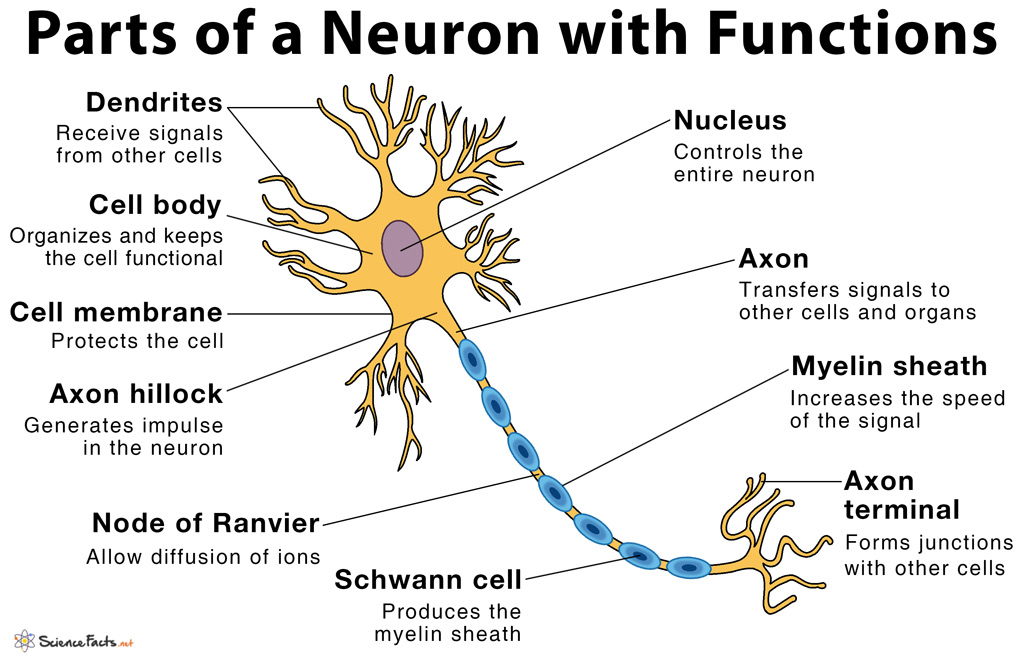





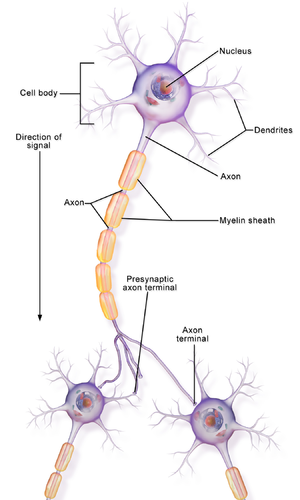

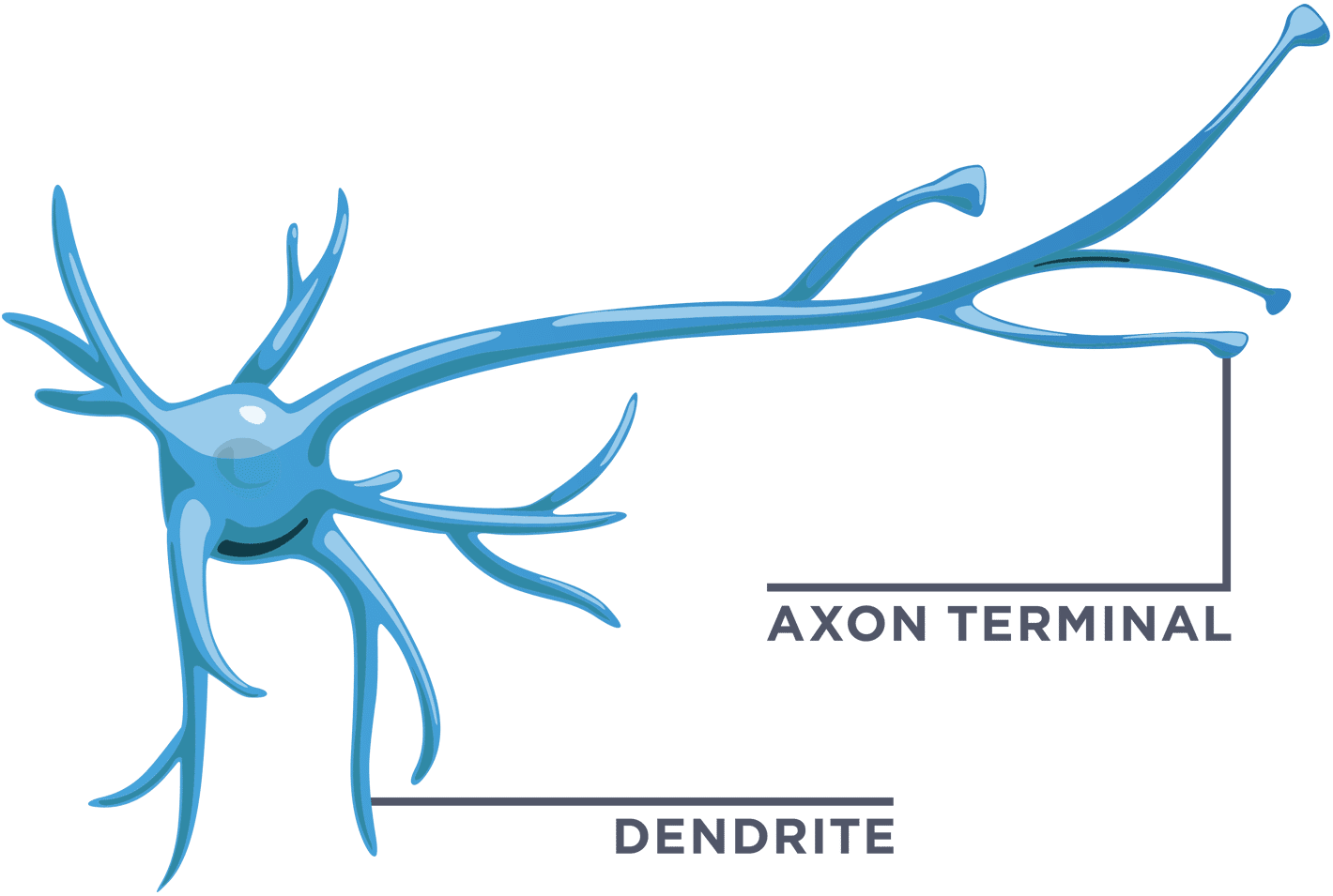
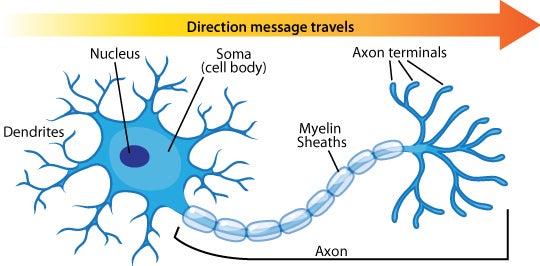

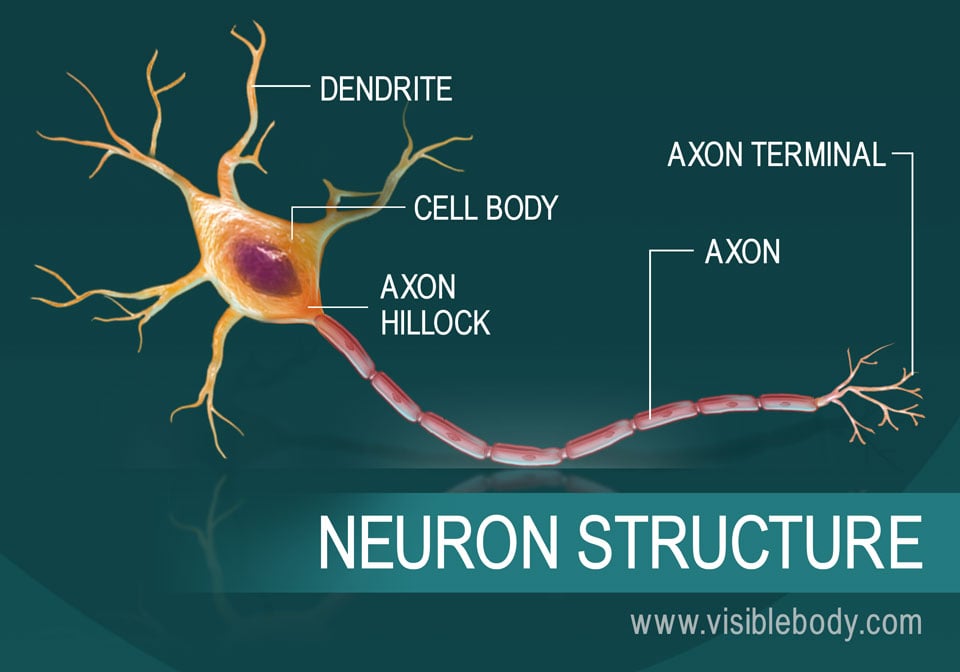






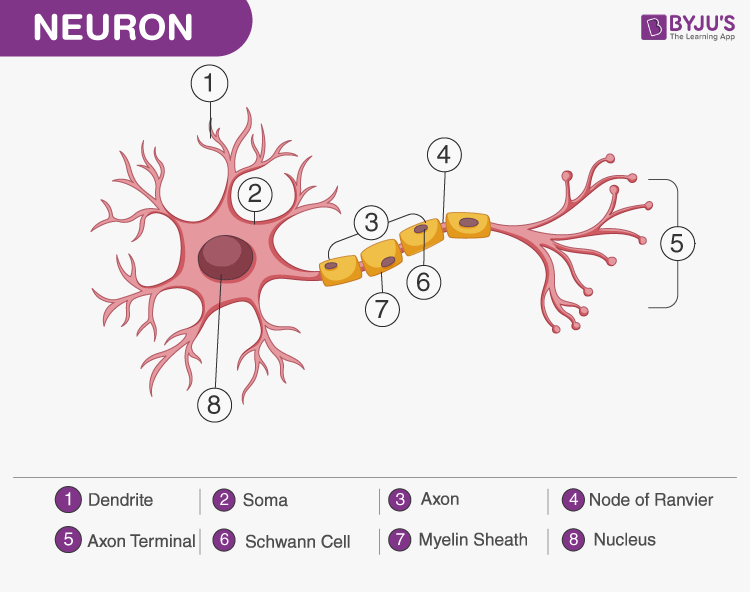
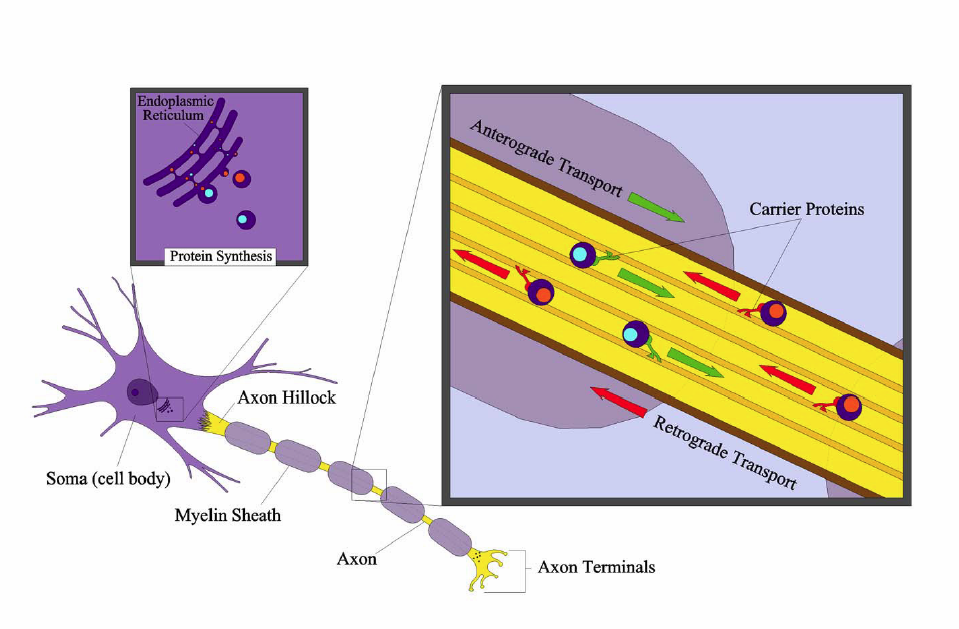

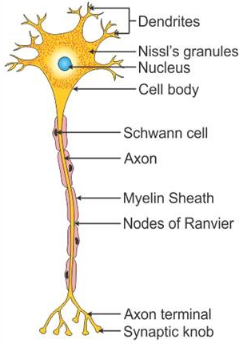
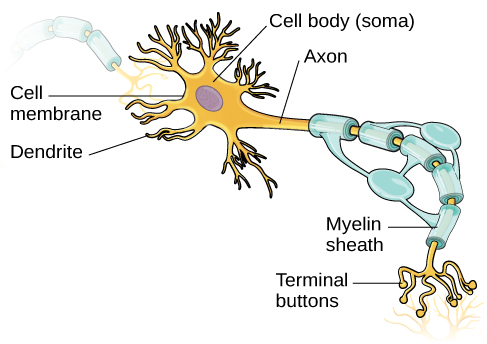
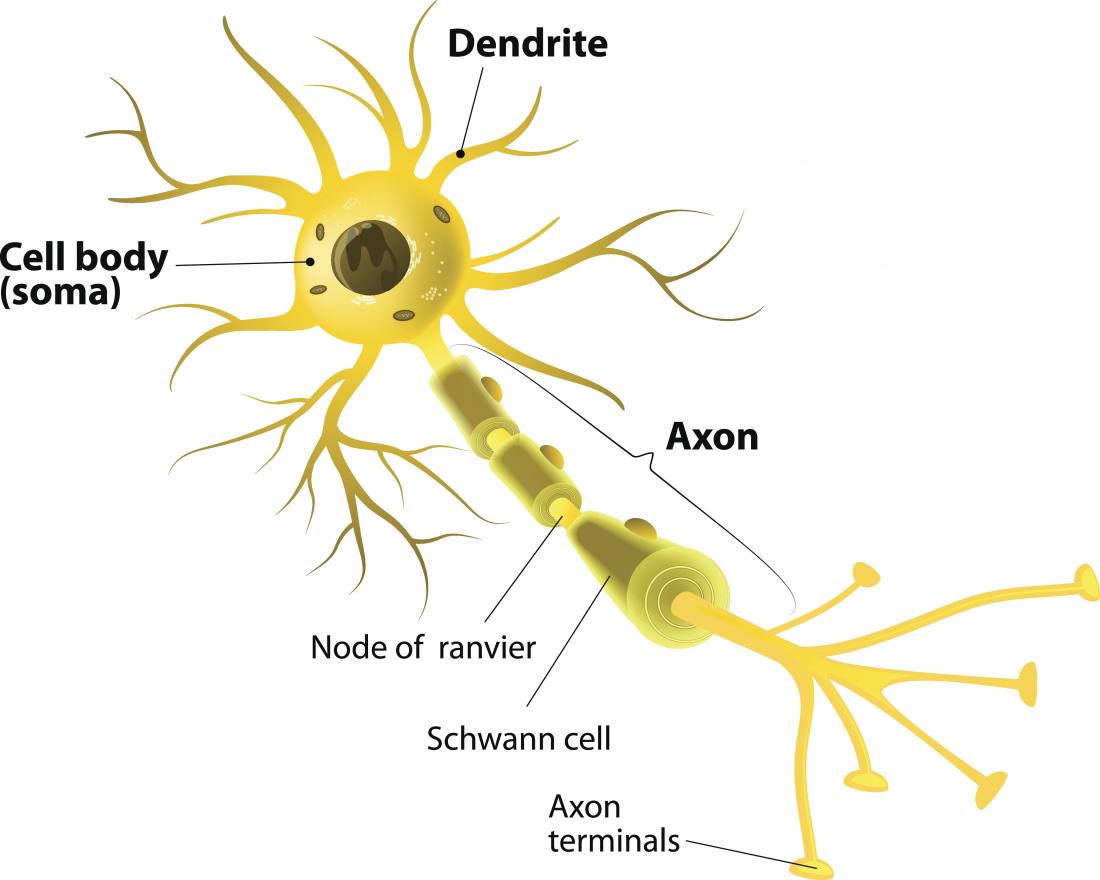

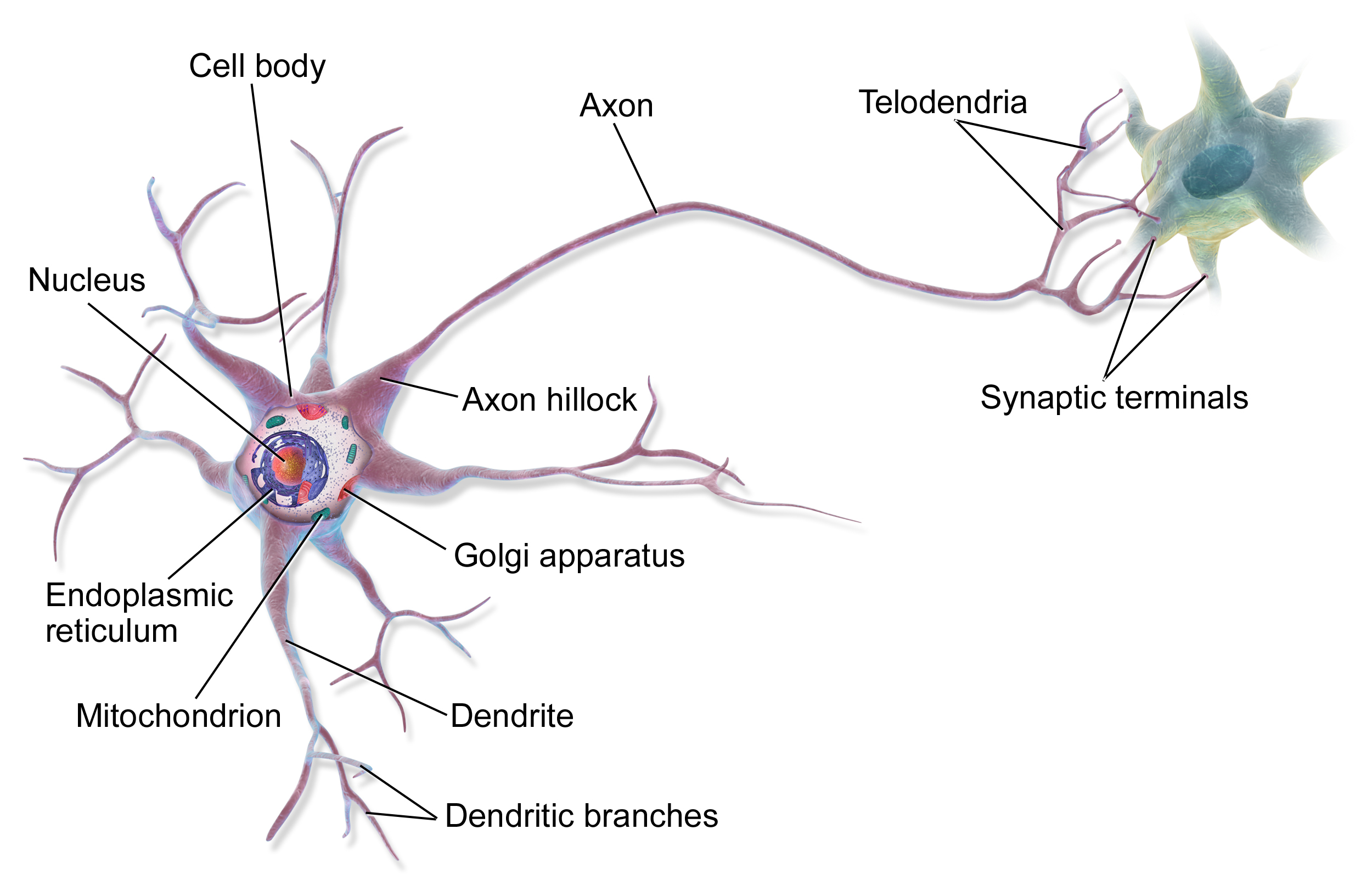


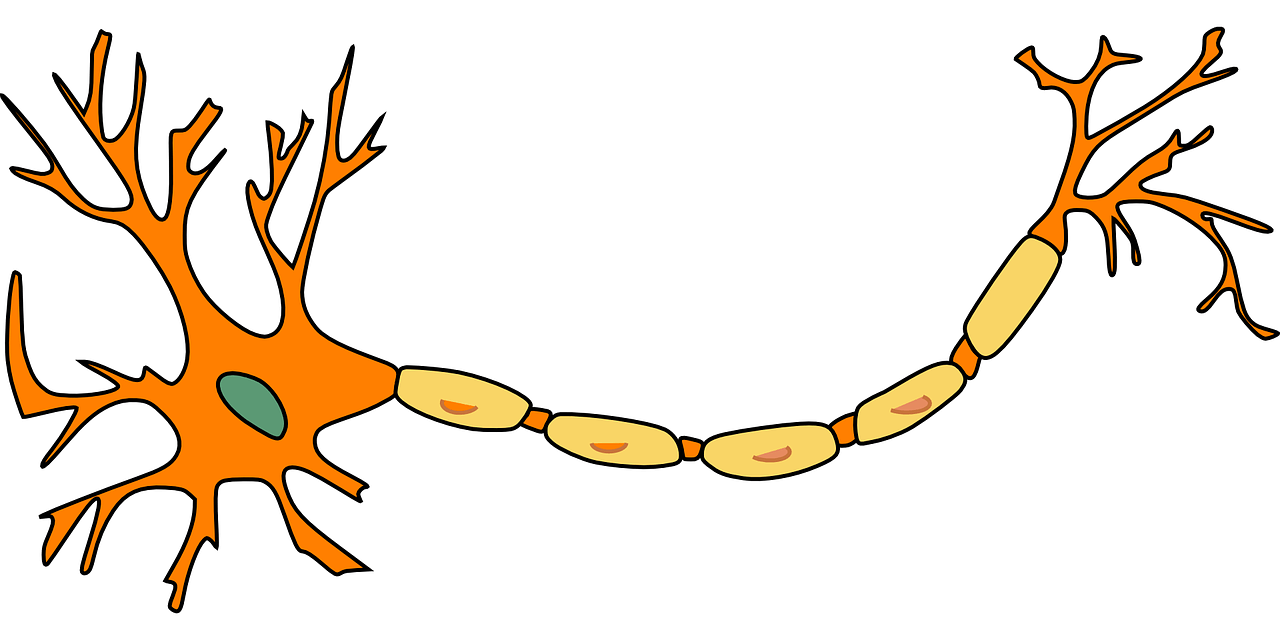

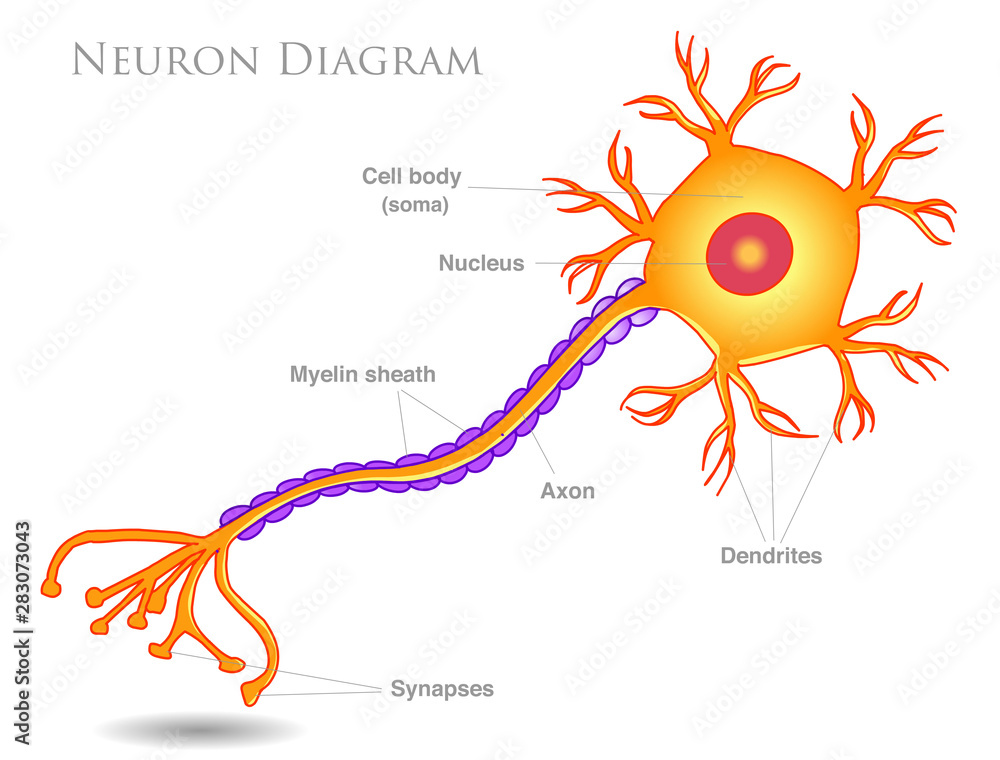

Post a Comment for "38 neuron diagram"